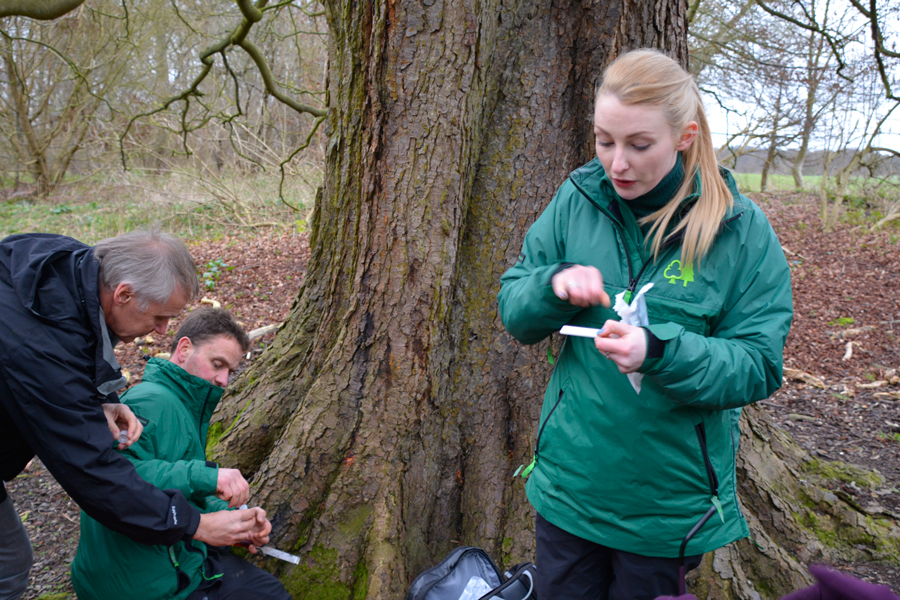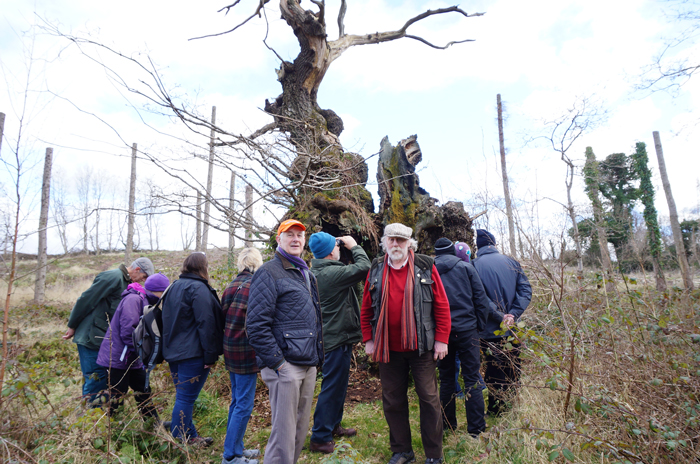People power can help battle tree diseases
An award-winning partnership which has identified 1,046 cases of tree pest and disease across the UK, over the last two years, is set to continue thanks to funding of £232,000 per year and additional support from a wide range of conservation and government bodies.
Observatree, launched in 2015, aims to train volunteers to help protect the UK’s trees, woods and forests from harmful pests and diseases, both new and existing. So far, 235 volunteers have been trained by a collaboration led by Forest Research, supported by the Woodland Trust, Forestry Commission England, Defra, Fera Science Ltd, the Animal & Plant Health Agency, the National Trust, Natural Resources Wales and Forestry Commission Scotland.
The volunteers, all trained by the Woodland Trust, have recorded some 13,216 hours of time and have surveyed over 3,000 sites in a little over two years. A small group of volunteers also verify cases of tree disease recorded via the Forestry Commission’s Tree Alert, an online reporting tool which allows anyone to report trees showing signs of ill-health.
Professor Nicola Spence, Chief Plant Health Officer, stresses that protecting our trees from the threat of pests and diseases is vitally important to us all and this project provides an excellent example of volunteers, NGS and government working together.
Dr Joan Webber, Principal Pathologist at Forest Research commented that Observatree’s network of trained volunteers gives Forest Research’s scientists many more eyes on the lookout for new threats to tree health: “They provide quality reports that let our experts focus on the most urgent cases,” she said.
Lord Gardiner, Defra Minister for Rural Affairs and Biosecurity, points out that the threat that disease and pests pose to our nation’s trees is a very real and growing concern, for wildlife, the landscape and the economy: “That is why this year we have pressed hard at EU level for increased protections against Xylella, in order to prevent the devastating disease reaching our shores and these were approved in October,” he said.
By focusing on pests and diseases which are of the highest concern, the volunteers support Government agencies such as Forest Research and the Forestry Commission, enabling them to take appropriate action at locations of significance identified by volunteers and tree health professionals, as quickly as possible.
(pictured above: Ash dieback, lesion staining)
Two volunteer roles have been created – Tree Health Surveyors who help spot the presence of specific pests and diseases on common tree species and Tree Health Triage Verifiers who collect additional information for tree disease records submitted through Tree Alert by the public and Tree Health Surveyors.
For more information on this project visit: www.observatree.org.uk
Tree Alert is an online reporting tool dedicated to gathering information about the health of the nation’s trees and the public can report issues via: www.forestry.gov.uk/treealert
In Northern Ireland please report via www.treecheck.net




